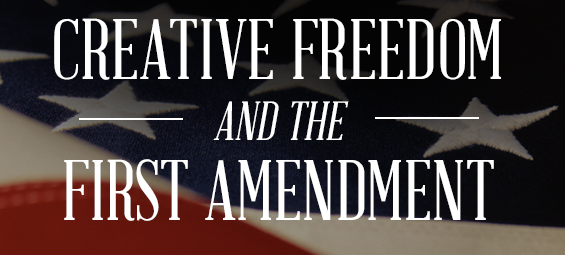Celebrating Free Speech Week Through the Lens of the Film and Television Industry
This week I have the privilege of serving as the Chairman of Free Speech Week, an annual celebration reminding all of us that most of the freedoms we enjoy as Americans stem from that first one enumerated in the Bill of Rights. Without free speech, we can never truly pursue the life, liberty, and happiness that Thomas Jefferson so famously laid out in the Declaration of Independence.
As Chairman and CEO of the Motion Picture Association of America, I am proud to be part of an industry that is both a beneficiary of and a champion for the First Amendment and freedom of speech. Not only do the stories we tell entertain audiences; they expand culture, educate and inform, and advance debates on important societal issues, constantly challenging us, as a people, to do better. Take, for instance, the many powerful and unvarnished stories bringing to light many of our nation’s flaws. Through films like “Do the Right Thing,” “Guess Who’s Coming to Dinner,” “A Gentleman’s Agreement,” and “12 Years a Slave” we have openly confronted issues of racial prejudice. “Philadelphia” and “Dallas Buyers Club” have both taken the issue of AIDS head-on; “All the President’s Men” was a powerful look at corruption within our government; and “The People vs. Larry Flynt” examined the right to freedom of speech itself.
The movies and television shows we create also often serve as de facto U.S. ambassadors to the world. For many people, their first exposure to our nation has come through watching a film or television show. With themes of free expression and America as a land of opportunity, these films and TV shows have played at least a small role in the decision of many to seek our shores. And, even for those who do not chose to come to the Unites States, these same themes can be an inspiration to fight for more opportunity and free expression within their own borders, helping spread democratic principles and respect for human rights across the globe.
As a United States Senator for nearly four decades, however, my passion for protecting this basic American freedom goes far beyond the work of America’s film and television industry. In 2004, for example, I introduced the Free Speech Protection Act. This bill would have created a federal shield law protecting journalists from facing the terrible choice of either revealing their confidential sources or going to jail.
And when Hartford Courant photojournalist Brad Clift was detained, interrogated, charged as a spy, and tortured after traveling to Sudan in 2005 to document the plight of refugees, my staff and I were able to work with the U.S. embassy and a local Sudanese attorney to clear Brad of all charges and bring him home safely. Unfortunately, however, there are many similar stories with far sadder endings, as we are reminded all too often. Nations that do not respect free speech also tend not to respect human rights, and the fact is that free speech is vital to ensuring human rights with a free press clearly better able to report about rights violations occurring around the world.
That is why Rep. Adam Schiff, Rep. Mike Pence, and I introduced the ”Daniel Pearl Freedom of the Press Act,” which President Obama signed into law in 2010. This legislation requires the State Department, as part of its annual human rights report, to identify nations in which freedom of the press is being violated; to shed light on governments that participate in or condone such violations; and to document actions that governments have taken to preserve the safety and independence of the media as well as to ensure the prosecution of individuals responsible for attacking journalists.
The adage, “I may disagree with what you say but will defend your right to say it” is well worn for good reason. Respecting the speech of people whose views you don’t share is the best way to expose yourself to other ideas, to test your own beliefs, and to help foster democratic principles and human rights. This is a belief that underscored much of my work as a United States Senator, and it is a belief that is the foundation of the work the American film and television industry accomplishes every day. Free Speech Week is a good time to take that adage to heart, with the goal of honoring it year round.
This blog first appeared on The Huffington Post.


